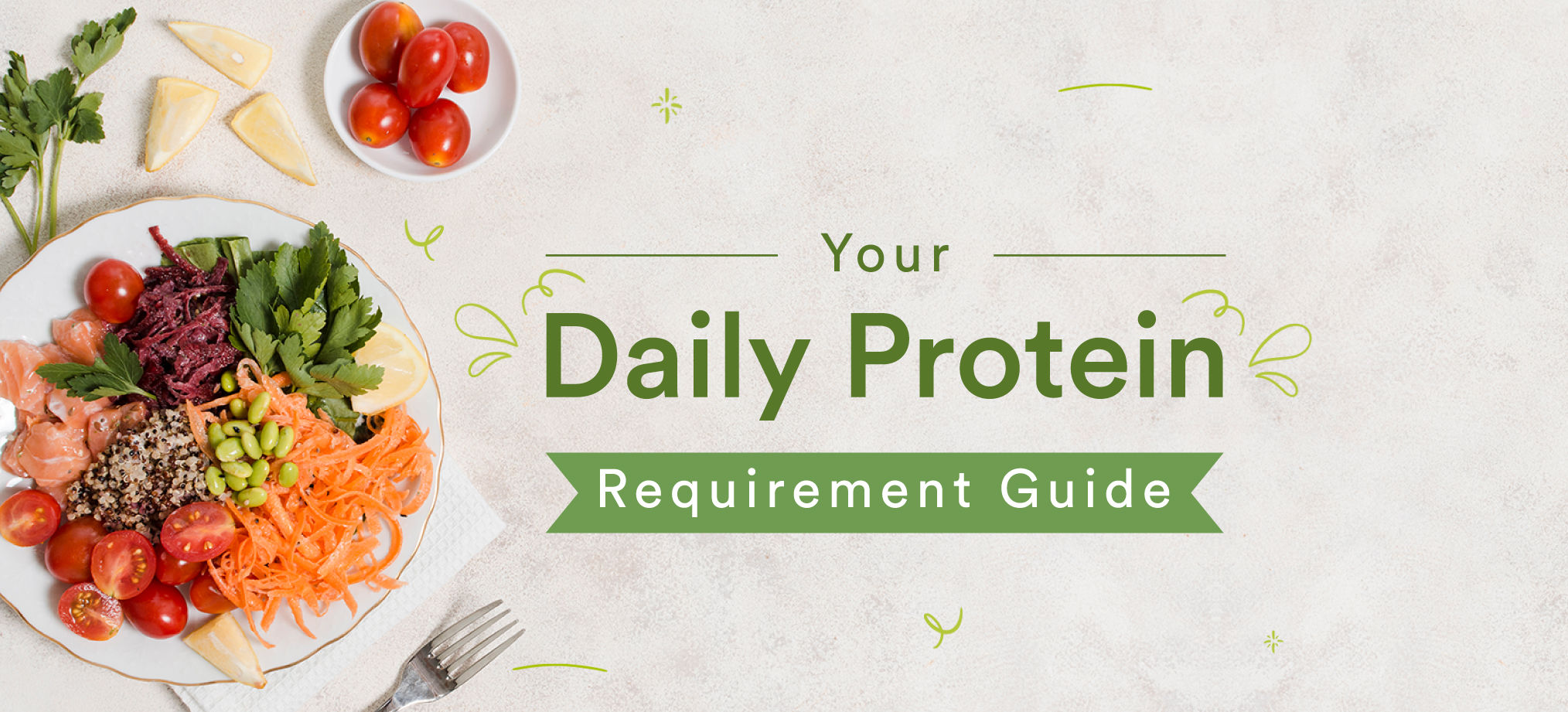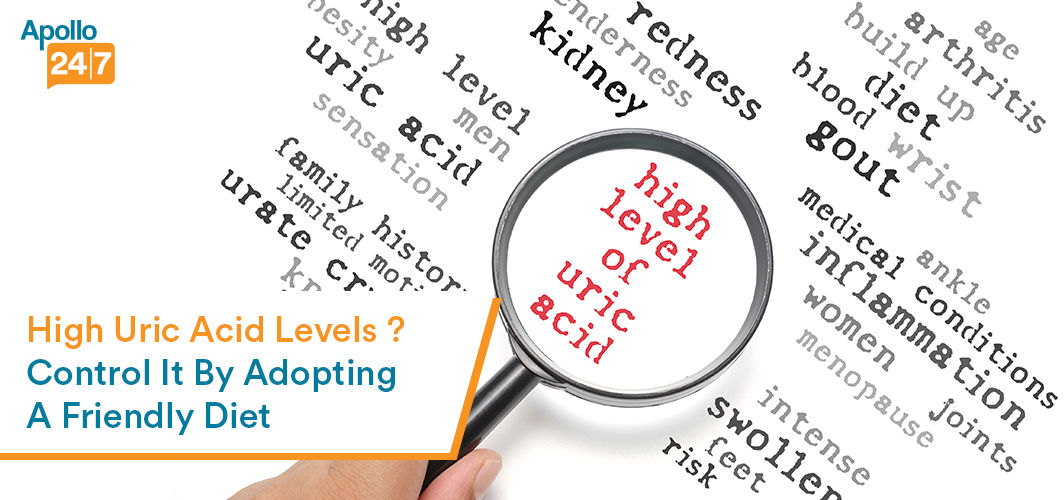General Health
How Much Protein Should You Consume Every Day To Build Muscles?
4 min read
By Apollo 24|7, Published on - 15 February 2023, Updated on - 06 August 2024
Share this article
0
0 like

Not many are aware of the fact that protein is a crucial nutrient for building and maintaining muscle mass. When a person engages in physical activities like weightlifting or resistance training, these result in small tears in the muscle fibres. Proteins made up of amino acids, act as building blocks of muscle tissue and help these fibres to repair and grow stronger. However, the amount of protein required by the body depends on various factors like age, activity level, overall health and physical goals. 
Importance of Protein in Daily Diet
As discussed earlier, protein is made up of amino acids which fuel the cells and power the body to function properly. When you consume protein, your body breaks it down into amino acids, which are then used to repair and build muscles. Without adequate protein intake, your body may not have enough amino acids to repair and grow muscle tissue, which can lead to slower muscle growth and recovery.
Besides, protein also plays a role in regulating metabolism, supporting immune function, and maintaining overall health as it aids in carrying oxygen in your blood. Since the body fails to store protein, it becomes a necessity for people to consume protein daily. Especially athletes, bodybuilders, and individuals engaging in regular physical activity should have an adequate amount of protein in their daily diet.
How Much Protein Is Needed per Day To Build Muscles?
The daily protein consumption quantity depends on various factors like gender, age, health, activity level, etc. However, if you plan to build muscles, it is recommended to consume 1.2 to 1.6 grams of protein per kilogram (kg) of body weight each day. As per the American Dietetic Association (ADA), a person who is 30 years of age and measures 5ft 5inches (165.1cm) in height and 70 kg in weight should consume 70-126 grams of protein per day, given the fact that he/she exercises 4-5 times per week.
Besides, research also states that gradually increasing protein intake, paired with strength training, can help increase muscle mass.
Side Effects of Consuming Too Much Protein
Just like everything else, too much of anything causes more harm than good. The same goes for proteins. When you consume excess protein (more than 2 grams of protein per kg of body weight) on regular basis, this can result in escalating the metabolic burden on the liver, kidney, heart and bones, thereby increasing the chances of weight gain, intestinal discomfort and even liver and kidney disorders. Besides, high-protein intake without proper guidance can also increase the risk of coronary heart disease. Therefore, one should consult a dietician or expert before increasing protein intake.
Best Sources of Protein
Protein can be obtained from either animal or plant sources. As per some nutritionists, animal-based proteins are easy to digest as compared to plant-based proteins.
- Animal-based proteins: lean meats, eggs, poultry, seafood, fish, dairy products, etc.
- Plant-based proteins: beans, nuts, seeds, lentils, legumes, etc.
If you are someone who is physically active or recovering from muscle injuries, the right amount of protein intake daily can be of great help. However, it's also important to balance your protein intake with other nutrients like carbohydrates and healthy fats. A well-balanced diet is the ultimate key to supporting overall health and fitness goals. Therefore, before looking for the best protein diet for muscle gain, it is recommended to consult a dietician or medical professional.
FAQs
1. How much protein do I need daily to build muscles?
It is recommended that a person consume between 1.2-1.6 g of protein for every kg of body weight per day for muscle mass gain.
2. What happens if I don't consume enough protein?
The body needs protein to repair and build tissues. So if your diet lacks protein, your muscles will get weak and you will feel tired easily.
3. At what age do muscles build the fastest?
The muscle gain peaks between 18 and 25 years in males and 16 and 20 years in females. However, this may vary with diet intake and physical exercise.
4. When building muscle, what food should I avoid?
Avoid consuming alcohol, junk, deep-fried and high-sugar foods, when you intend to build muscle.
5. What are the best sources of protein for muscle gain?
Some of the best proteins for muscle gain include fish, seafood, poultry, low-fat milk, eggs, etc. In case you are allergic to any of these items, doctors can also suggest protein supplements.
If you need expert advice,
Medically reviewed by Dr Sonia Bhatt.
General Health
Consult Top Orthopaedicians
View AllLeave Comment
Recommended for you
_14.jpg?tr=q-80)
General Health
I have a 7-month-old baby. Again I am pregnant for 2 months. I want an abortion. Please suggest me any medicine.

General Health
High Uric Acid Levels? Control It By Adopting A Friendly Diet
Do you have high levels of uric acid? Then you must be cautious as it can lead to gout, a painful bone disorder that mainly affects the joints. High levels of uric acid indicate the kidney's inefficiency to eliminate it from the body.

General Health
Epithelial Cells in Urine: Normal Range, Causes & Health Risks
Epithelial Cells in Urine may indicate infections or kidney issues. Learn about the normal range, causes, and health implications for better diagnosis.
Subscribe
Sign up for our free Health Library Daily Newsletter
Get doctor-approved health tips, news, and more.
Visual Stories

Could There Be More to Your Snore?
Tap to continue exploring
Recommended for you
_14.jpg?tr=q-80)
General Health
I have a 7-month-old baby. Again I am pregnant for 2 months. I want an abortion. Please suggest me any medicine.

General Health
High Uric Acid Levels? Control It By Adopting A Friendly Diet
Do you have high levels of uric acid? Then you must be cautious as it can lead to gout, a painful bone disorder that mainly affects the joints. High levels of uric acid indicate the kidney's inefficiency to eliminate it from the body.

General Health
Epithelial Cells in Urine: Normal Range, Causes & Health Risks
Epithelial Cells in Urine may indicate infections or kidney issues. Learn about the normal range, causes, and health implications for better diagnosis.


